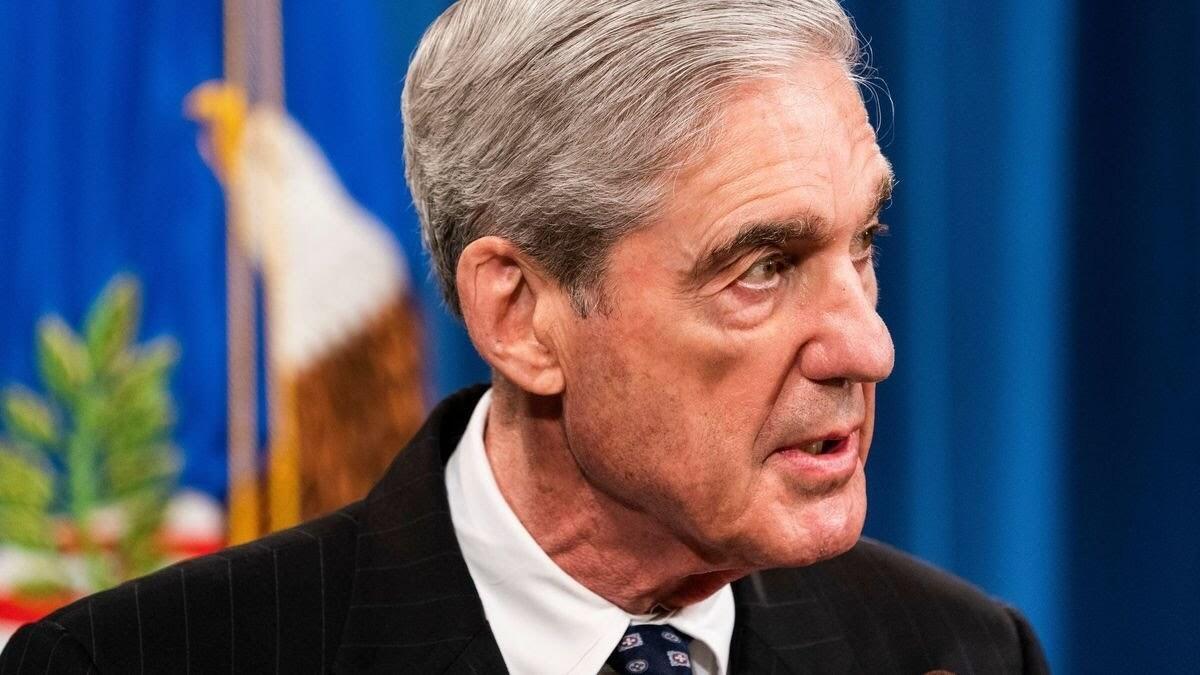Editorial: Robert Mueller is a man of too few words about Trump and obstruction

- Share via
When the Justice Department announced Wednesday that special counsel Robert Mueller would make a public statement that morning, expectations soared that he would clarify ambiguities in his report about whether he and his staff thought President Trump had obstructed justice.
After a few minutes of his remarks, however, those expectations crashed. Not only did Mueller fail to elaborate on what was in his report, but he also indicated that he had no interest in testifying before Congress about the evidence his office had collected, the conclusions he drew or any other aspect of the two-year probe. “The report is my testimony,” Mueller said.
Much as we may admire Mueller, the position he is taking is needlessly evasive and a disservice to the public.
Much as we may admire Mueller, the position he is taking is needlessly evasive and a disservice to the public. Of course, the special counsel’s 448-page report is the primary source for members of Congress and others who want to understand the actions the president took to try to thwart Mueller’s investigation into whether the 2016 Trump campaign criminally conspired with Russia.
But the report left unanswered questions, most notably whether Mueller would have accused Trump of obstruction of justice if the Justice Department hadn’t decided that a sitting president couldn’t be indicted. The report mentioned that longstanding policy, but it left unclear whether Mueller believed that, in the absence of such a directive, he would have concluded that Trump committed a crime.
On Wednesday, Mueller did little to clarify the issue. He reiterated that “if we had confidence that the president clearly did not commit a crime, we would have said that.” But he also noted that his office didn’t “make a determination as to whether the president did commit a crime.” He then cited the Justice Department’s view that a sitting president couldn’t be indicted. “And beyond department policy,” Mueller said, “we were guided by principles of fairness. It would be unfair to potentially accuse somebody of a crime when there can be no court resolution of an actual charge.”
Mueller’s reticence on this question is especially frustrating because his superiors, Atty. Gen. William P. Barr and former Deputy Atty. Gen. Rod Rosenstein, didn’t think the policy against indicting a president stood in the way of determining whether Trump committed a crime. After Mueller turned in his report in March, those two officials decided on their own that “the evidence developed during the special counsel’s investigation is not sufficient to establish that the President committed an obstruction-of-justice offense.”
If Barr and Rosenstein can take a position on that question, why can’t Mueller? Ascertaining his view on that issue isn’t a matter of idle curiosity.
Enter the Fray: First takes on the news of the minute »
Useful as it would be to hear Mueller’s view of that question — and Congress should attempt to persuade him to provide it — his reluctance doesn’t prevent Congress from scrutinizing the voluminous evidence in his report. It describes a series of incidents in which Trump attempted to undermine the investigation, including by directing then-White House Counsel Donald McGahn to have Mueller fired. Most of those efforts failed, Mueller concluded, but that was “largely because the persons who surrounded the president declined to carry out orders or accede to his requests.”
As concerned as Mueller was about the evidence of “multiple, systematic efforts to interfere in our election,” he noted on Wednesday that his investigation did not establish that members of the Trump campaign criminally conspired with Russia in its election interference activities. But on the equally important question of obstruction, the president by Mueller’s own account has not been exonerated.
Congress has not only the right but the responsibility to investigate Trump’s attempts to hinder the Russia investigation, whether or not it does so as part of a formal impeachment inquiry. It’s notable that in his brief statement on Wednesday Mueller emphasized that the Justice Department opinion holding that a sitting president may not be indicted also says that “the Constitution requires a process other than the criminal justice system to formally accuse a sitting president of wrongdoing.”
Congress must take the hint and continue to aggressively investigate the evidence Mueller adduced, even if he is unwilling to offer his own interpretation.
Follow the Opinion section on Twitter @latimesopinion and Facebook
More to Read
A cure for the common opinion
Get thought-provoking perspectives with our weekly newsletter.
You may occasionally receive promotional content from the Los Angeles Times.









